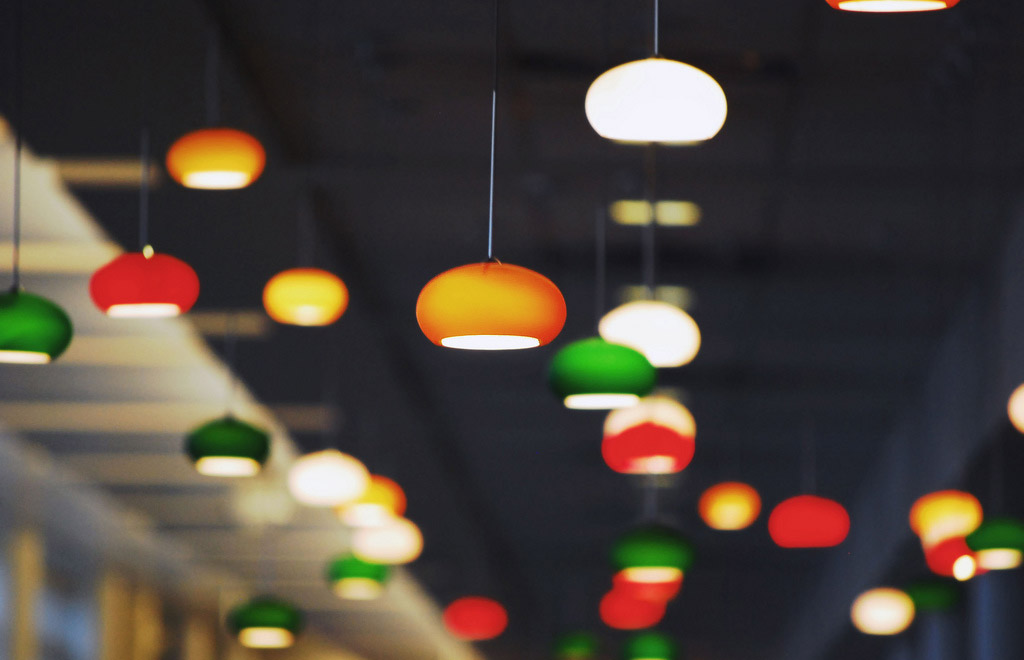
photo credit: flickr/msabbath
It wouldn’t make sense to furnish and decorate each room to look the same. Spaces like the living room and bathroom have very different purposes and each requires specific arrangements, furniture and decor. Lighting, too, needs to be different in each room.
In interior design, lighting can affect the overall look of your home and even how you feel in it. Additionally, each room needs to have a specific lighting plan designed to complement the room’s functionality and help you feel comfortable. Use this lighting guide to achieve a well-lit space in every room of your home.
Here are a few living room lighting design tips
The living room is a multi-functional space. It’s where you go to watch TV, read a book, take a nap, complete the crossword and socialize with friends and family. It’s also the room where many people choose to show off their best decor pieces.
Along with general overhead lighting, the living room requires task lighting and accent lighting. Pinpoint areas where certain activities will be taking place (such as reading, socializing, etc.). This will help you determine where you will need lamps for task lighting. To highlight decor such as artwork or architectural elements, use wall sconces or backlighting. You might also consider adding a dimmer switch, which will allow you to create soft lighting whenever you want to use the living room to relax.
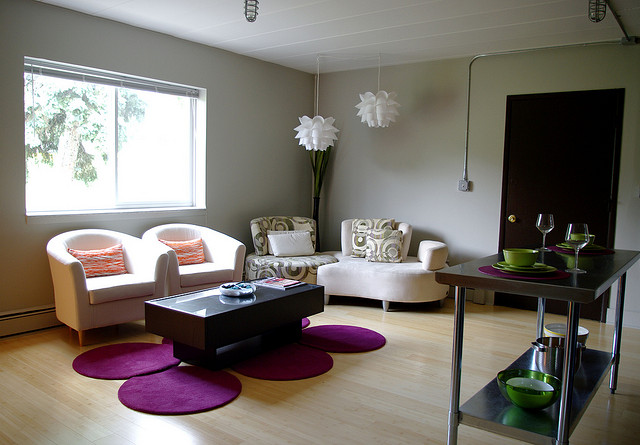
A couple of white modern pendant lights hangs in the corner of this urban apartment
photo credit: flickr/urbanelife
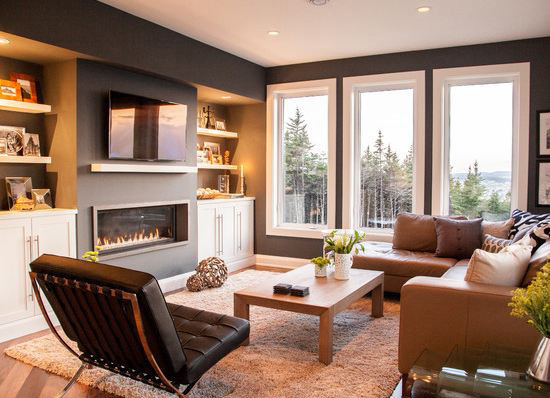
A combination of recessed lighting in the ceiling illuminates the living room gathering area. Additional lighting are installed in the bookcase areas for even more options.
photo credit: flickr/house-n-baby
Ideas for bathroom lighting for task and ambience
Bathrooms can be tricky to light. In the morning, you’ll need maximum light for personal grooming. After an exhausting day, however, you might want to escape to your bathroom to relax.
For superior lighting in the morning, place sconces on both sides of your mirror. This will give you the lighting you need and minimize shadows. For ambience, install a decorative chandelier (yes, chandeliers can be used in the bathroom) or recessed cans. When you want the lighting to be really soft, turn off the mirror lights and use candles instead.
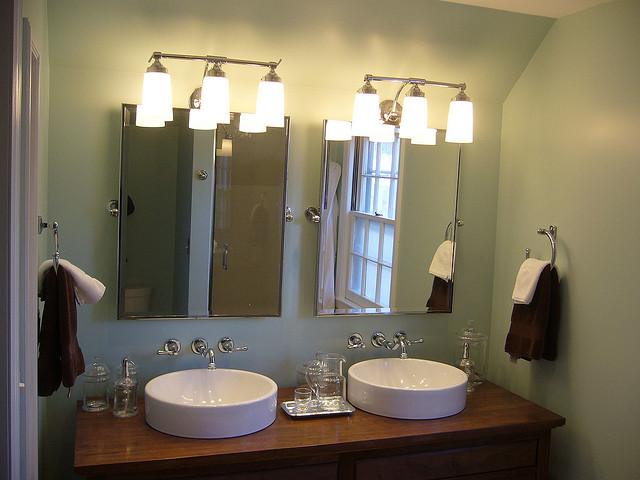
These lamps over the mirror provide plenty of lighting in the morning routine.
photo credit: flickr/koht
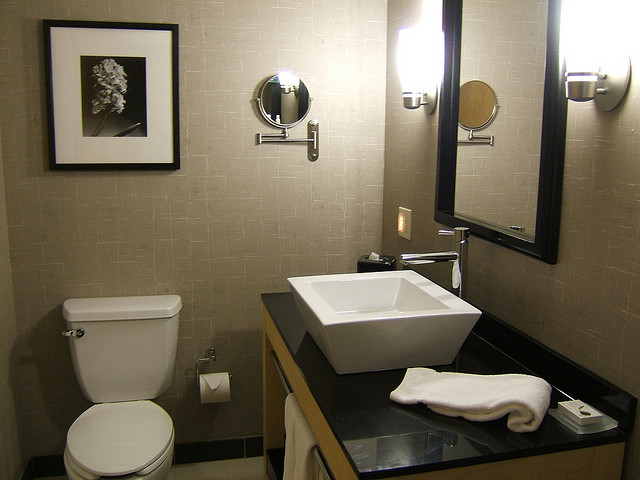
These silver finish wall sconce lighting placed on each side of the mirror looks good with the bold design fixtures.
photo credit: flickr/orudge
What lighting options are there for the kitchen?
The kitchen is a high-functioning space and will need more light than other rooms. You don’t want to be cutting vegetables or washing dishes in a dimly-lit space!
During the day, let in as much natural light as possible. Obviously, you can’t rely on the sun all day, so be sure to add general lighting in the center of the room. Under-cabinet lighting can help brighten dark counter spaces and eliminate shadows. If you have a kitchen island that you use for preparing meals, eating or doing work, mini-pendants can provide excellent task lighting. Other areas where you might need task lighting include over the sink and above the stove. (Learn more here.)
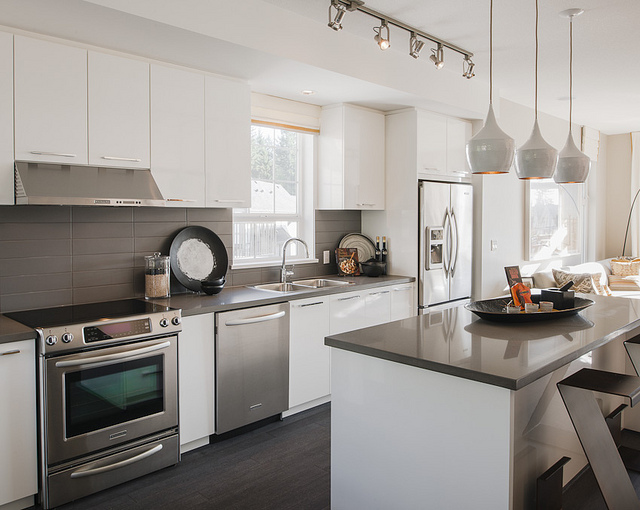
Three modern glossy oversize white pendant lights hang over the counter top in the open kitchen. Track lighting directs light in various food prep areas.
photo credit: flickr/polygonhomes
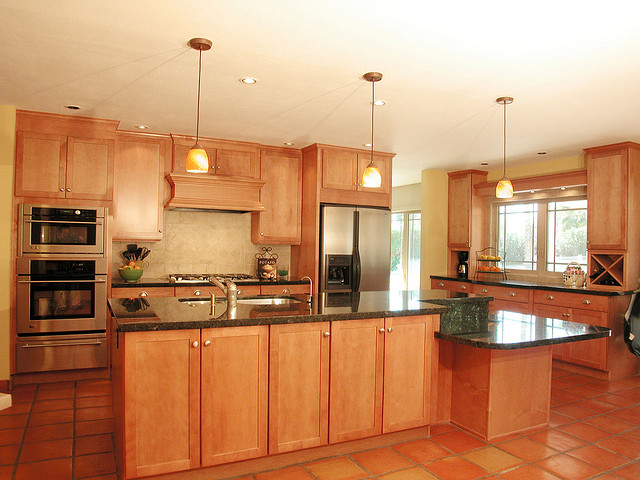
Recessed lighting is used throughout this kitchen. Pendant lamps are spread out over the kitchen island to direct lighting to the sink and counter area.
photo credit: flickr/nancyhugo
Make your dining room stand out with creative lighting fixtures
Typically, the dining room has a fairly simple lighting plan, but that doesn’t mean your fixtures have to be simple. Use this chance to get creative and a little bold! A stand-out pendant above the dining room table can add style and function to your room. If you have features in the dining room you wish to highlight, accent lighting can help your decor get noticed and add ambience. If you have a buffet and use it to display decor, be sure to install under-cabinet lighting.
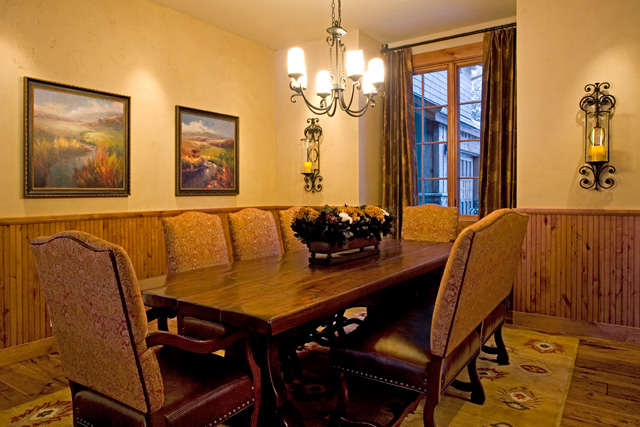
photo credit: flickr/stevebennettbuilders
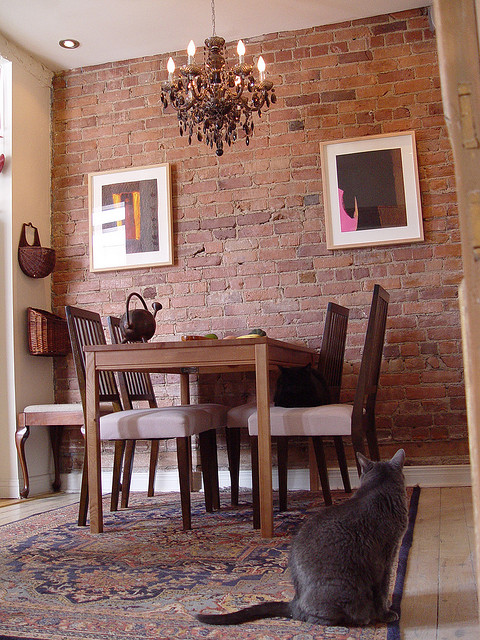
photo credit: flickr/ anileprakash
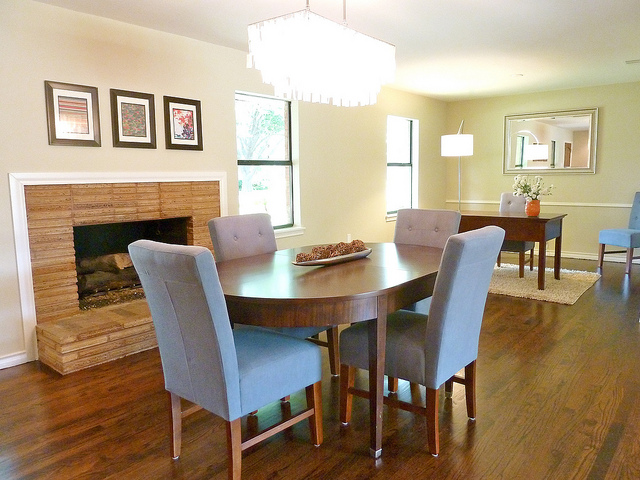
Chandeliers doesn’t have to be round, this rectangular chandelier looks incredible over the dining table and enhance the overall room decor.
photo credit: flickr/itsgreattobehome
Creating a relaxing mood for your bedroom
The bedroom is primarily for sleeping and relaxing – or at least, it should be. The lighting in your bedroom should never feel harsh or too bright.
Use a combination of task, accent and general lighting to achieve a well-lit room, with lower-wattage bulbs for the overhead lights. A lamp or wall sconce next to the bed is great for reading at night. It’s also helpful to have lighting near the bed, in case you have to get up at night for a glass of water.
If you use your room during the day and prefer it brighter, let in natural light. Or, use higher wattage bulbs and install a dimmer switch. (Learn more here.)
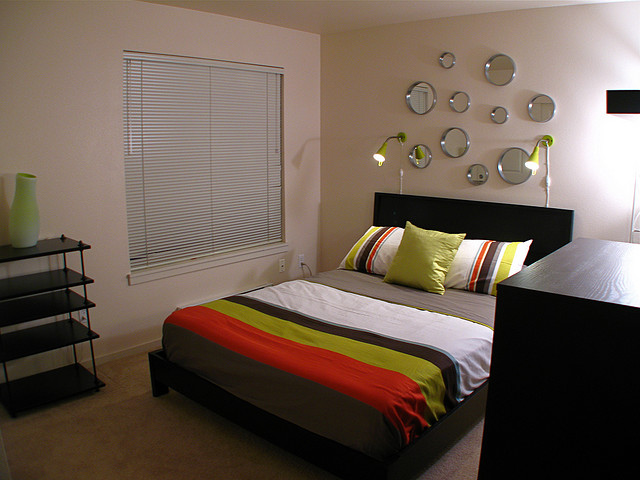
photo credit: flickr/jcroft
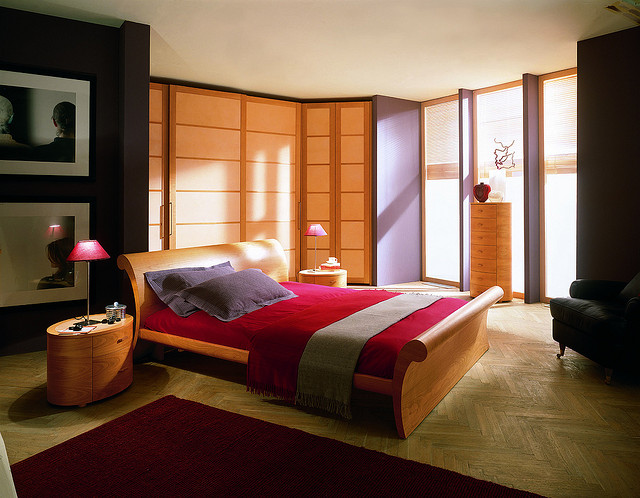
Minimalistic lamps are used in this gorgeous contemporary bedroom to match the smooth simple lines of the bed.
photo credit: flickr/mazzali
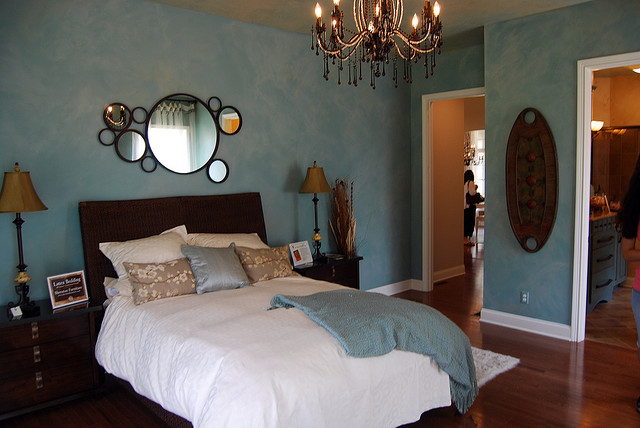
Transitional lamps decorate the night stands in this blue bedroom with Art Deco mirror. Elegant chandelier hangs in the center of the room.
photo credit: flickr/lape
Proper home office lighting helps you focus on your work
Working with improper lighting can cause headaches, eye strain and drowsiness. How you light up your space will depend on whether you mostly work in front of a computer or not. If you stare at a screen most of the day, soften your ambient lighting to reduce glare and prevent headaches. Instead, rely on indirect lighting from floor or table lamps instead.
If your work doesn’t require frequent use of a computer, let in natural light and use higher-wattage bulbs for overhead lighting. You’ll still want to use a lamp for task lighting.
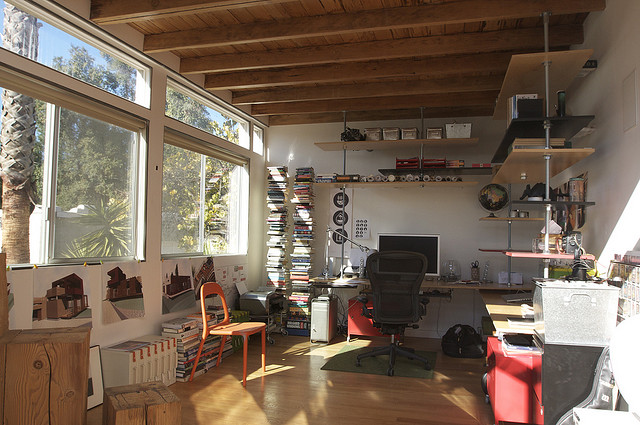
Plenty of natural lighting to keep you alert and focus in your work in this office.
photo credit: flickr/jeremylevinedesign
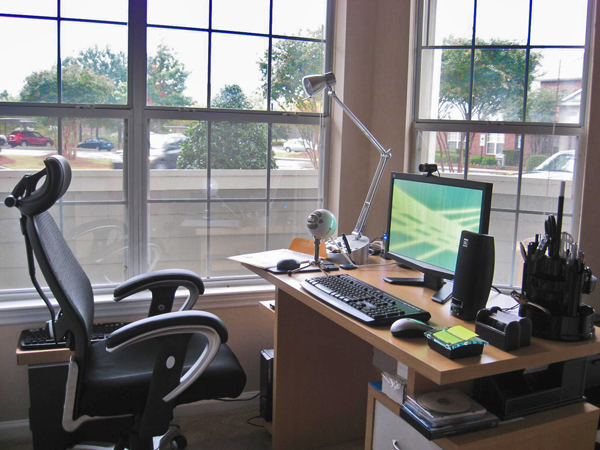
This small office utilizes a combination of outdoor lighting and desktop task lamp.
photo credit: flickr/jnyemb
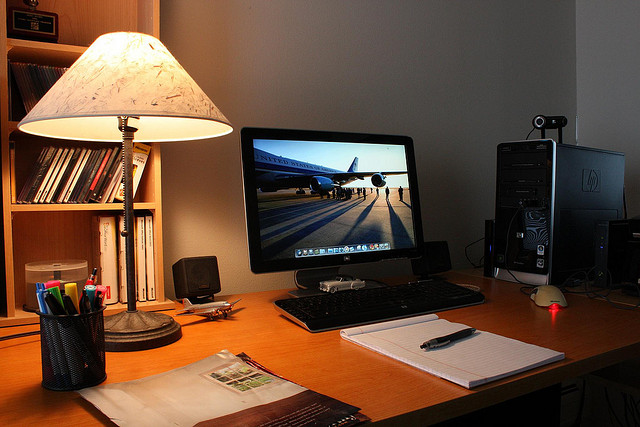
A simple desk lamp may be all we need for our home office for soft indirect lighting effect.
photo credit: flickr/ hannaford
Every room in your home is different, but each room needs a solid lighting plan. Be sure to add layers of light in each room for a more evenly lit space, and always consider the room’s primary function before you install any fixtures.